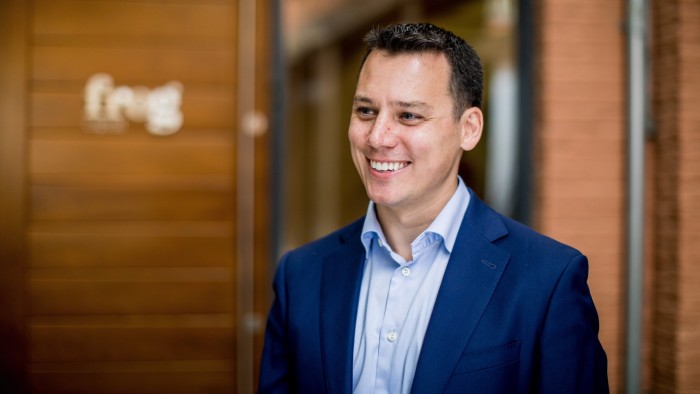How to break into venture capital

Simply sign up to the Business education myFT Digest -- delivered directly to your inbox.
An MBA from London Business School was key to Joe Krancki securing a job in venture capital — but not because of anything he learnt in class.
What counted was being a full-time student on campus, surrounded by people with connections to the best jobs in London’s financial services industry. A tip-off from a banker Mr Krancki bumped into outside the computer room led to a summer internship with 3i, the private equity firm. There he met Mike Reid, who would later found Frog Capital, the tech VC firm, and who hired Mr Krancki as part of his founding team.
“I was in the right place at the right time and I was the right person,” Mr Krancki says.
A job in private equity has long been the cool career choice among MBA students, but getting into the sector requires luck. Unlike equally lucrative careers in banking and consulting, an investor is intimately involved in the success of companies, which by dint of raising funds are bullish about their prospects. A VC partner will take a seat on the board of portfolio companies. They also need good people skills as the job often involves being a mentor to founders and their teams.
“VC jobs were incredibly coveted,” says Reshma Sohoni. The 2003 Insead MBA graduate is now partner of early-stage tech VC firm Seedcamp. Being hired by the company in 2006 felt like a “once in a lifetime” opportunity.
But MBA students are increasingly making their own luck when it comes to the broader market of private equity investing — of which VC is a part. Private equity was the second-biggest employer of MBA graduates this year at Harvard Business School. A record 18 per cent of the class went into the sector, up from 10 per cent in 2013. This is partly a reflection of more students trying start-ups before looking for VC jobs, according to Jonathan Shepherd, corporate relations director in the careers and professional development team at HBS. Mr Shepherd advises joining a start-up as a strategy to moving into a VC job. “It helps to learn about what it takes to succeed, and then use that experience,” he says.

Even with networks like those of HBS alumni, students must work to find a route into private equity. Unlike investment banks, VC firms do not visit business school campuses.
“It is not easy at all for outsiders to get hired,” says David O’Toole, head of the technology and professional services executive search team at Harvey Nash. “The VC sector has a culture built on trust. So the best thing to do is to build a record of working in start-ups.”
Index Ventures, Europe’s biggest tech-focused VC firm, has several MBA graduates on its senior team. None were hired straight from business school.
The industry does not have a good record on gender diversity. Research this year by Diversity VC, a lobbying group, found just 11 per cent of partnership-level jobs at US VC firms were held by women, although there were signs that the percentage was increasing in junior roles.
Those few who are hired straight from the MBA classroom face challenges. Without previous experience, an MBA graduate is likely to have to start at a level below that they might expect elsewhere, which can be off-putting to people with a high-level qualification, according to Martin Mignot, a partner at Index Ventures. “It is very much an apprenticeship model,” he says.
Those hired at this “associate” level at Index are assigned a sponsor to guide them in spotting opportunities, negotiating deal terms and supporting portfolio companies. The average starting salary is $88,713, according to PayScale, a pay data company.
Studying at a school located near the tech VC industry has the advantage of placing you close to the action. But even at the Cambridge’s Judge Business School, close to the Silicon Fen start-up hub in the UK, and Berkeley’s Haas School of Business on the edge of San Francisco, only one or two of the hundreds of MBA graduates each year get hired by VC firms, according to alumni data. Others join the sector several years after graduation because they have gained relevant experience in start-ups, according to Abby Scott, assistant dean for MBA career management at Haas.

But studying near the action can lead to a way in eventually, according to Judge MBA graduate Carol Cheung, who became an investment associate at Cambridge Innovation Capital after working for start-ups in the city. Her employer has invested in 22 companies, four of which have Ms Cheung as an adviser. She is also involved in decisions on which ventures to back, and fields a handful of pitches a week from tech start-ups seeking equity funding.
Experience teaches her how to spot the teams that will make an idea work from the many that lack the ability to succeed. She is also aware that she cannot always make the right call.
“It is hard to find that diamond in the rough, but it can be even harder living with the decision not to back a company that went on to succeed,” she says.
Comments